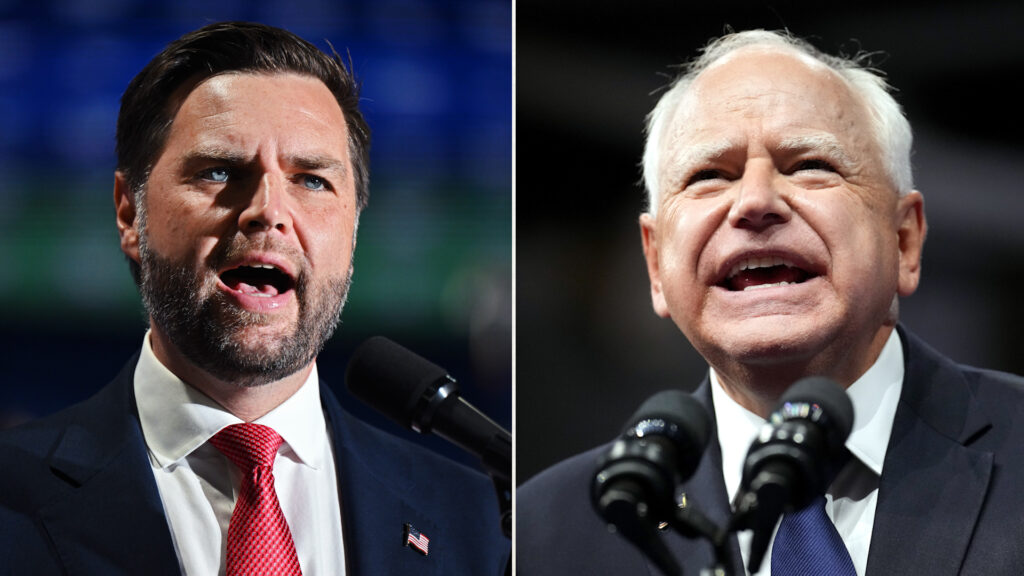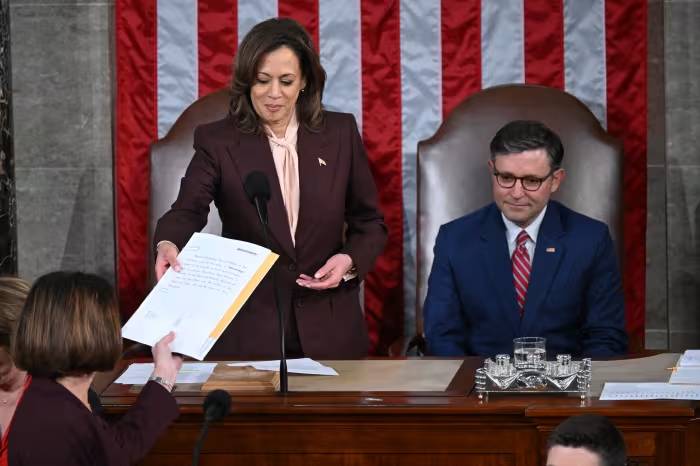Politics
Congress Validates Trump’s Election Win Amid Snowstorm
Congress validates Trump’s Election on January 6, Congress validated President-elect Donald Trump’s electoral win, marking a contrast to the chaos of four years ago. The certification process, uninterrupted by objections, proceeded swiftly despite a rare snowstorm blanketing Washington.
Blizzard Doesn’t Halt Proceedings
The snowstorm caused widespread school closures and federal government shutdowns, disrupting normal operations. However, Congress proceeded without delay, undeterred by weather. Lawmakers convened under heightened security in the afternoon, ensuring uninterrupted progress. The joint congressional session focused on finalizing the electoral certification process. Despite challenges, officials prioritized fulfilling constitutional duties amid extraordinary circumstances.
Trump’s Bold Statement on Truth Social
Trump posted on Truth Social, stating: “Congress certifies our historic election victory today—a monumental moment. MAGA!” His declaration emphasized triumph. The message celebrated the occasion’s significance, underscoring its importance to supporters. This followed Congress’s peaceful certification process, marking a pivotal political moment.
Vice President Harris Oversees Certification
At 1 p.m., Vice President Kamala Harris entered the House chamber to preside over the electoral count. She announced results, confirming Trump’s victory with 312 votes against her 226. The process remained uninterrupted, as no objections emerged during the session. This allowed for a smooth and timely certification, finalizing the outcome.
2022 Legislation Clarifies Vice President’s Role
After the 2021 Capitol attack, Congress emphasized that the vice president’s role in certifying elections is strictly ceremonial. Consequently, this reform prevents any vice president from unilaterally rejecting electors, addressing prior controversies. Moreover, the measure reinforces constitutional safeguards, ensuring transparency and fairness in the process. Ultimately, this change stems from efforts to strengthen democracy following challenges in 2021.

Vance and Walz Prepare for Crucial Vice Presidential Debate
JD Vance and Tim Walz will engage in a high-stakes vice presidential debate. The event is scheduled five weeks before Election Day…
Republicans Look Forward to Expanding Their Agenda
Senate Majority Leader John Thune (R-SD) congratulated Trump and shifted focus to the future, highlighting the Republican Party’s growing coalition and upcoming legislative goals. Plans for border-control measures and tax cuts are expected to be introduced in the coming months.
Democrats Commit to Peaceful Transfer of Power
Senate Minority Leader Chuck Schumer (D-NY) emphasized the importance of upholding the people’s decision, pledging not to challenge the election results. He reaffirmed the Democrats’ commitment to the peaceful transfer of power, a stark contrast to the 2021 insurrection.
Aftermath of the 2021 Capitol Attack
The Capitol riot on January 6, 2021, led to significant loss and injury. Five people, including a police officer, died, and more than 140 officers were injured. Despite the chaos, the certification resumed the following day. Legislation passed in 2022 increased the threshold to object to a state’s electors, ensuring a smoother process.
Trump’s Pardon Considerations
Trump suggested he might pardon some of the 1,500 individuals charged for their roles in the 2021 Capitol riot. Meanwhile, supporters of the rioters emphasized urgency, pressing Trump to act swiftly. Furthermore, they highlighted the legal struggles many defendants continue to face. Ultimately, Trump’s remarks stirred debate regarding accountability and justice for the events of 2021.
Snowstorm Challenges Lawmakers’ Attendance
Despite the snowstorm, lawmakers took extraordinary measures to guarantee their attendance for the certification process. For instance, Rep. Gerry Connolly (D-VA) secured transportation to Washington amid challenging conditions. This commitment underscored the event’s critical importance in establishing a precedent. Ultimately, the certification served as a model for future electoral processes.


